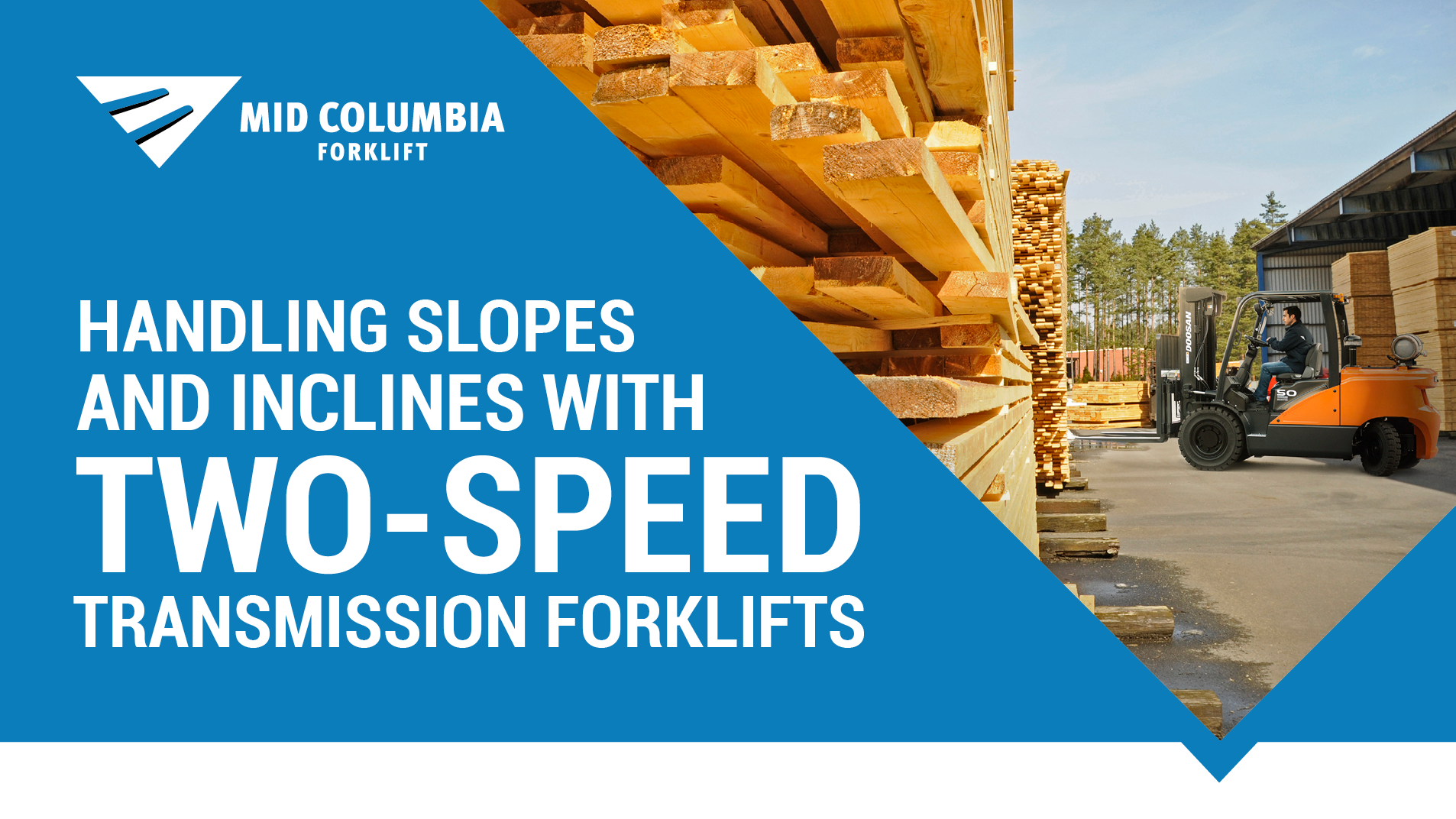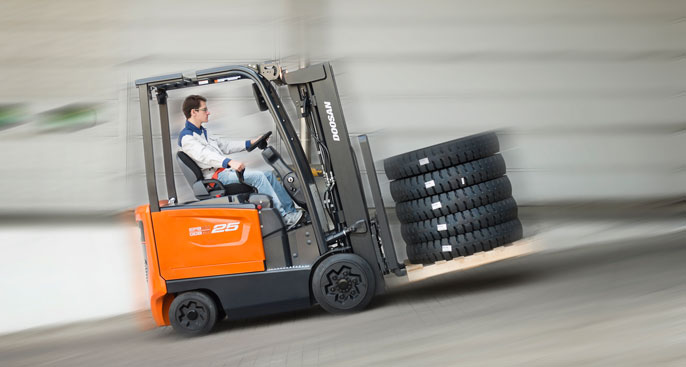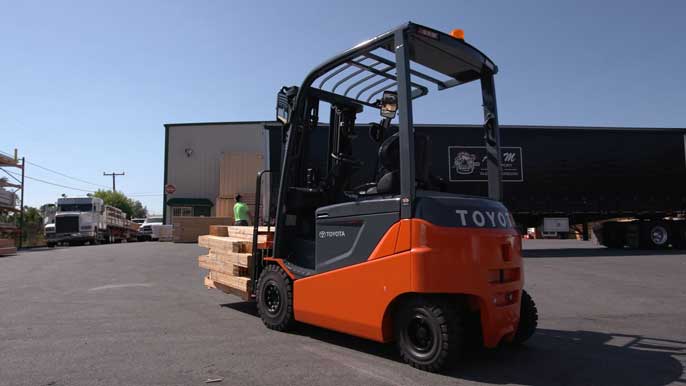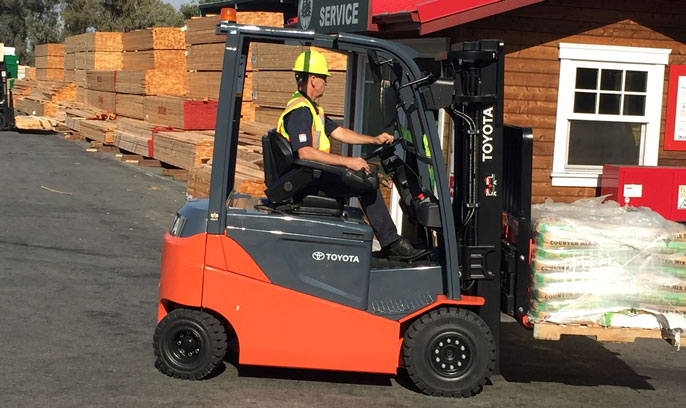Handling Slopes and Inclines with Two-Speed Transmission Forklifts
by Dan Livingston, on February 26, 2021 at 10:36 AM
 For busy operations managers, mastering the ups and downs of throughput are the name of the game. For outdoor businesses like lumber yards, your forklifts have to be optimized for performance. Buying a forklift that can handle inclines and declines means getting a lift truck with two-speed transmissions. Here’s why:
For busy operations managers, mastering the ups and downs of throughput are the name of the game. For outdoor businesses like lumber yards, your forklifts have to be optimized for performance. Buying a forklift that can handle inclines and declines means getting a lift truck with two-speed transmissions. Here’s why:
Benefits of Two-Speed Forklift Transmissions
Most forklifts in warehouses and other indoor applications feature a one-speed transmission. These standard pieces of equipment deliver smooth and predictable operation. That’s easy for consistent work areas without grades and slopes. For outdoor operations, forklift operators may be going up and down slopes and inclines throughout their shift.

Navigating these slopes requires extra fuel and can impact your throughput. Two-speed transmissions can help offset these issues, though. The higher speeds available in second gear can help operators take on inclines more efficiently to save time and maximize your productivity. Switching to two-speed transmissions can increase travel speeds up grades by up to 60% and can make it easier to negotiate up to 50% steeper grades.
How to Handle Inclines with Two-Speed Forklift Transmissions
For operators who are used to one-speed forklifts, the shift to a two-speed can be a bit tricky. To maintain OSHA standards of certification, your staff should be trained and certified in the new equipment. Shifting into second requires more than hitting the button. Your operators must know the grade, the position of the load, the height of the forks, and more essential information to navigate it safely and efficiently.

The main differences will pertain to top speeds and safe handling of loads. While you can start a forklift in second gear, it’s important to use first gear when possible. This can help reduce strain on the equipment and maintain fuel economy. If your operators do not use the equipment properly it may result in increased downtime. This lost productivity offsets any efficiency gains you made with the two-speed transition. Many models also come with an available first gear lock to keep the forklift from shifting. This can help reduce potential damage for delicate loads.
Remember that going up an incline in a forklift is never about speed. For two-speed forklifts, this means downshifting to first gear when going up or down an incline. Second gear speeds are for lengthy distances in large facilities.
Forklift Incline Best Practices
While two-speed transmission forklifts require some changes in operation, best practices for handling inclines stay the same. When operating forklifts on grades and inclines, remember to:
- Know your forklift’s gradeability! Taking a lift up a hill too steep can result in serious tip over accidents and potential harm to operators.
- Always keep your load up the ramp. Drive forward up a ramp and reverse down it when moving products.
- Adjust your mast tilt so that loads are leaned back against the forklift.
- Always look in the direction you are traveling.
- Never turn while going up or down an incline.
- You should always use low gears and low speeds on inclines so that you can stop quickly and safely if needed.
Remember that all operators must be trained and certified per OSHA guidelines for every piece of equipment they will use. This includes two-speed transmission forklifts.

If you’re considering updating your fleet to include two-speed transmission forklifts, talk to the team of material handling professionals at MidColumbia Forklift and MidCo Material Handling. We can walk you through your configuration options to find the right equipment for your unique business. Contact us online or by phone at one of our local Washington state branches:
Auburn 253-854-5438
Pasco 509-547-7413
Wenatchee 509-663-9009
Yakima 509-457-5137





